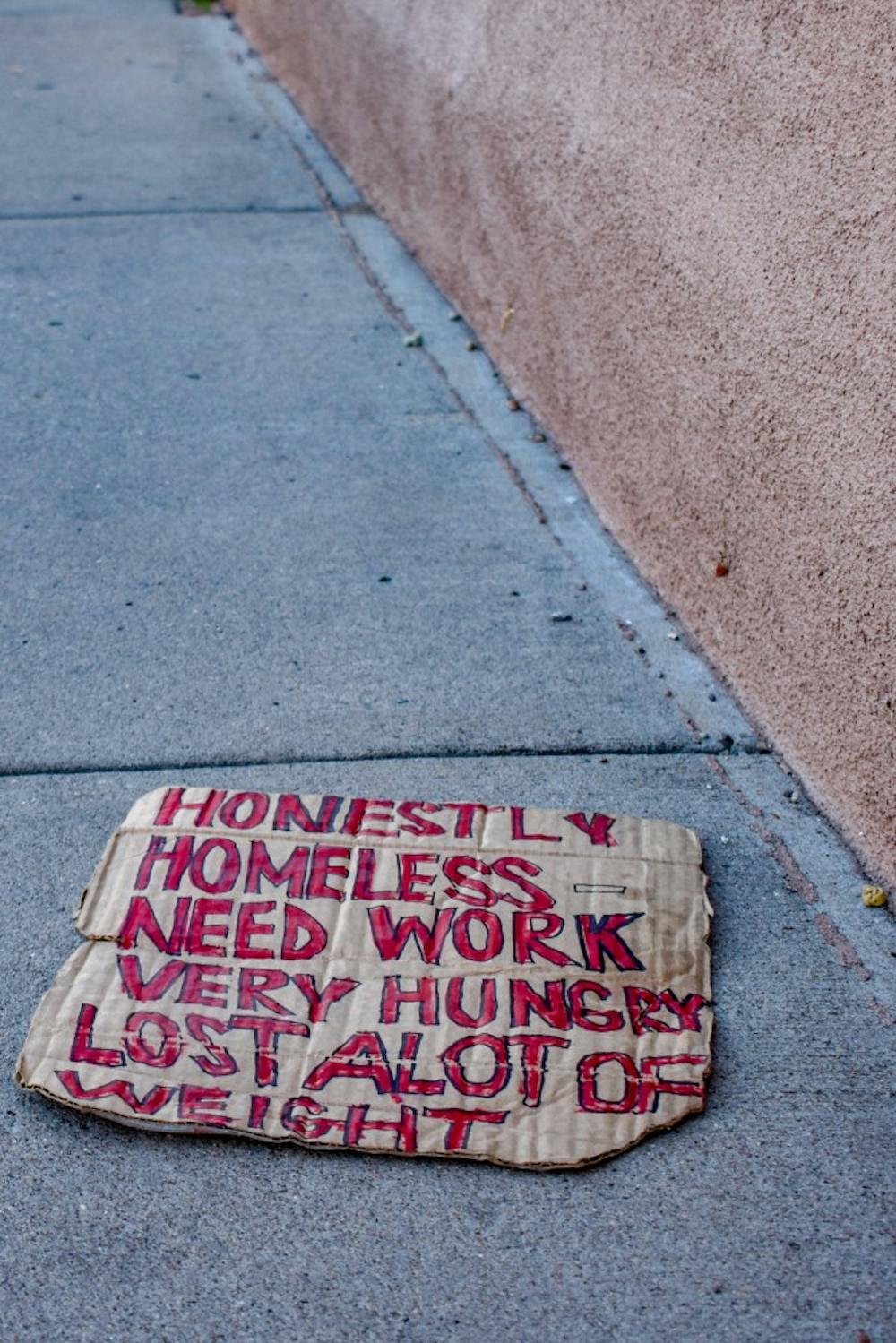Early in the afternoon during the summer of 2017, 50-year-old Lou Molzhon was sleeping on a mattress under the Interstate 40 overpass at 12th Street. Described by friends and acquaintances as a kindhearted man who was quick to share a smoke, he had been living on the streets of Albuquerque for over a year.
Under the bridge downtown, Molzhon didn't give his life away — it was stolen from him. Police and witnesses say that two assailants soaked him in gasoline and set him on fire. Molzhon later died of his injuries at the University of New Mexico Hospital. His attackers have yet to be apprehended.
This is but a microcosm of the threats facing those experiencing homelessness in the United States, and the crisis is only getting worse. Homelessness has tripled in New York City since the turn of the century, according to the Coalition for the Homeless. A proposed homeless "navigation center" in an affluent waterfront neighborhood in San Francisco is facing immense backlash from residents, even as City Supervisor Aaron Peskin says the city's homelessness situation has reached a "boiling point".
What are the root causes of this cruel new reality? There are studies stacked on top of studies that have tried to pinpoint the nature of this rampant societal ill. The National Law Center on Homelessness & Poverty cites domestic violence, the 2008 foreclosure crisis, and mental illness or substance abuse as contributing factors. The issue is complex, but a singular flaw in our economic structure is quite clearly the source of this epidemic: income inequality.
The French economist Thomas Piketty has written of the dire consequences of wealth concentration. In "Capital in the Twenty-First Century", he argues that the acceleration of income inequality causes social and economic instability. According to Piketty, unless laissez-faire style economics is checked by a progressive tax on the wealthy, the very future of our democracy faces an existential threat.
This revelation shouldn't come as a surprise to anyone who has lived in the U.S. and experienced the effects of wealth disparity firsthand. Income has stagnated for working families while pay for executives has skyrocketed. A report from the Economic Policy Institute notes that average CEO pay is 271 times that of the average American worker — that ratio was 30 to 1 in 1978.
A recent visit to downtown Albuquerque threw into sharp relief the deepening divide between those who have and those who have not. The brand new One Central "multi-use" apartment complex on 1st and Central, a concrete and glass monument to gentrification and aesthetic blandness, stood in stark contrast to disheveled men and women sitting at bus stops and on curbs. Their despair is a product of our stacked economic system — they see no hope for the future, and their elected representatives are doing nothing to help alleviate their suffering.
This is a crisis of conscience. The International Monetary Fund, the World Bank, and the United Nations peg the U.S. as the wealthiest nation in the world. The issue isn't whether or not we have the capacity to house everyone; we do. Various studies have shown that it's more cost effective to house people than to have them drain public resources (emergency rooms, law enforcement, et al), which is an inevitable result of a life on the street.
The issue is a matter of whether or not we choose to listen to our moral compass and ensure people can live their lives in dignity. Our current capitalist model, which privatizes gains and socializes losses, can be pinpointed as the virus attacking the health and wellbeing of the republic.
What can be done? Piecemeal approaches have seemed to be the status quo for municipalities and state governments. Mayor Tim Keller's plan for a centralized homeless shelter is commendable and certainly should be funded, but the underlying issues must eventually be addressed. Jobs that provide a living wage, a surplus of affordable housing, and a structural shift in how income is distributed are the only permanent antidotes to this public health crisis.
Nobel Prize-winning American novelist Pearl Buck wrote that "the test of a civilization is the way that it cares for its helpless members." Former U.S. Vice President Hubert Humphrey spoke in 1977 about the litmus test of any society that deems itself civilized: "The moral test of government is how that government treats those who are in the dawn of life, the children; those who are in the twilight of life, the elderly; those who are in the shadows of life; the sick, the needy and the handicapped."
It is clear that there is a moral imperative for us to take action. The alternative is a future in which countless more Lou Molzhons will be targeted and lost for the crime of being poor.
Get content from The Daily Lobo delivered to your inbox
Andrew Gunn is a freelance reporter for the Daily Lobo. The opinions described in this column are his own. He can be contacted by email at news@dailylobo.com or on Twitter @agunnwrites.






